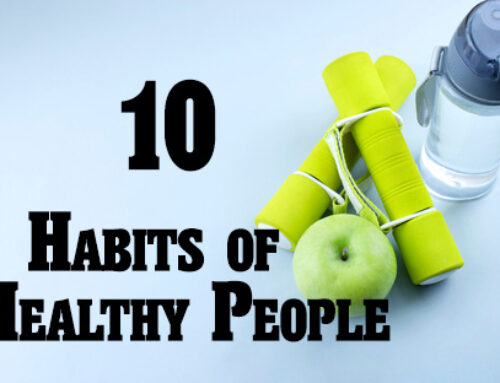Your hormones are like the strings of a marionette doll pulling you back and forth. They make you do things you seemingly have no control over. Ever have one of those moments? These hormones control your metabolism, muscle tone, libido, sleep patterns, and much more. When hormone levels become skewed, the body’s natural systems suffer.
Your Body’s Important Hormones:
- Melatonin
- Growth hormone
- Thyroid hormones T3 & T4
- Aldosterone
- DHEA
- Testosterone
- Estrogens (estrone, estradiol, estriol)
- Progesterone
- Pregnenolone
The two different models of endocrinology, the branch of medicine that deals with hormone issues, are the Replacement model and Functional model. The Replacement model involves measuring which hormones are low and replacing them. Let’s say you have low estrogen and progesterone, and they give you estrogen and progesterone to replace those and bring those levels back up. That’s the replacement model. The Functional model is different. It is concerned with determining the underlying cause or source of the problem and addressing it at that level. Once you do that, the hormones basically take care of themselves. There are basic systems in the body that are required for proper hormone function. If you make sure those systems are functioning well, the hormones will usually be balanced and maintain optimal levels.
Example 1: The Wrong Way to Treat Low Testosterone
Low testosterone in men is a major topic right now. It has even received a nickname, “manopause.” The typical approach is to go to the doctor, where they examine testosterone levels. When they’re low, doctors give extra testosterone to bring the levels back up. One of the drawbacks to this approach is that a common cause of manopause is actually aromatization of testosterone into estrogen. An enzyme called aromatase increases the conversion of testosterone to estrogen, which in men is not desirable. If you were to take more testosterone in that situation, it could actually just lead to higher levels of estrogen because the testosterone is being converted into estrogen. This is just one example of how a hormone imbalance can play out and why it’s so important to focus on the underlying causes rather than just using the replacement model.
 Do We Ever Need To Replace Hormones?
Do We Ever Need To Replace Hormones?
Sometimes it’s necessary to replace hormones, but there’s never a case where you would only use the replacement model. Let’s just agree that the functional model is always the best choice, but within the functional model, sometimes replacement is part of the treatment program.
Example 2: Replacing Thyroid Hormone for Hoshimoto’s Disease and Thyroid Dysfunction
The replacement model can be beneficial for individuals with Hashimoto’s thyroiditis, an autoimmune thyroid disease that can cause hypothyroidism. With Hoshimoto’s disease, the body attacks the thyroid gland and destroys thyroid tissue. Thyroid tissue is where thyroid hormone is produced. Once the thyroid tissue is destroyed, it doesn’t come back. So it’s possible that your body can destroy so much thyroid tissue that you don’t have the capacity to produce adequate amounts of thyroid hormone internally anymore. In those cases, taking supplemental or replacement thyroid hormone such as Synthroid, Armour, or Nature-Throid, is necessary and beneficial. The benefits of thyroid hormone are so great, and thyroid hormone is so universally necessary in the body, that the benefits of replacing it with medication far outweigh any potential side effects of that medication. Always remember though, proper thyroid testing is essential for treatment while monitoring the signs of thyroid dysfunction. Most doctors only test TSH levels, but you must do a complete thyroid panel for accurate treatment.
Classic signs of possible thyroid dysfunction:
* Hard to get to sleep, waking up often, or slow to rise even after sleeping well
* Low energy requiring caffeinated interventions; muscle weakness
* Overly sensitive to cold
* Poor hair and nail quality; premature graying or balding
* Brain fog and memory issues; mood swings, depression, and irritability
* Inability to lose weight
* Heart palpitations, or heartbeat too rapid or too slow
* Unexplained joint aches and pains
* Constipation or digestive problems; craving sweets and carbohydrates
* Low sex drive, but still interested in sex
* Low basal temperature
Functional Treatment of Decreased Hormone Production
Optimal nutrition is surely a must if you intend to keep your health in balance. There is some variation on what foods are best for hormone production, and not all hormones are affected the same way. But there are some foods to always avoid and some that are always worth including. Check out our list with a few helpful do’s and don’ts below:
Foods to Avoid: Dairy, Bread, Soy, and Sugar
Dairy, including milk and cheese, can often cause mucus to be formed in your intestinal tract and other cells. Mucus is simply a word that describes accumulated inflammation. This takes place when inadequate enzymes are available to fully digest the food. When mucus is present, yeast growth in your body is naturally enhanced. This also collects in the body’s tissues, including your delicate endocrine glands. Yeast and mold then becomes a barrier to optimal hormone production and use. Bread can have the same affect on your mucus. This is partially due to the nature of grains: they possess enzyme inhibitors that preserve their integrity until they are soaked and sprouted. Your body naturally responds to indigestible grains by forming mucus for the body’s protection, but that encourages the reproduction of yeast and mold. Soy and its processed derivatives should be avoided by anyone with a possible hormone deficiency. Soy has been shown to reduce thyroid hormone production by blocking its conversion pathways. Likewise, soy itself is perceived by cell receptors as estrogen. This creates a decrease in testosterone production in men and can lead to estrogen dominance and massive weight gains in women. Sugar is another food that I suggest you limit. Processed refined sugar takes a toll on your body over time. Many reports in scientific literature substantiate its adverse effects on health, inhibiting enzymatic reactions involved in hormone production, and disrupting target tissue sensitivity. Interestingly, spicy and salty foods increase adrenal gland hormone production, while refined sugar slows it down.
Foods That Enhance Hormone Production: Iodine, Whole Foods, Fish, and Protein
Iodine is necessary in the production of the metabolic thyroid hormones T3 and T4. Iodine is found in ocean fish, shellfish, fruits and vegetables. Iodized salt was invented to aid in iodine intake, but the body prefers to get it from naturally occurring sources. Whole foods are the best source of nutrition for overall health, including hormone health. Whole foods have higher amounts of fiber than processed foods, and it’s this fiber that feeds the hormone-producing bacteria in your intestines. These bacterial strains make Serotonin, Acetylcholine, and many B-vitamins, important molecules for happiness, concentration, and energy! Fish high in omega-3 fats (salmon, tuna, cod, and sardines) are vitally important for hormone production. Most hormones are made with fat molecules. When omega-3 fat ingestion decreases, hormone production decreases. If omega-3 fat ingestion is replaced with omega-6 fat ingestion (Trans fats, soybean oils, Oreos, etc.), healthy hormone production decreases as inflammatory hormones increase. If you are not getting enough fish in your diet, a supplemental fish or flax oil is highly recommended. Protein is needed to provide the essential amino acids necessary for hormone synthesis. Protein is utilized by the growth hormones to build muscles, repair from injuries, and for energy production. Protein sources should be greatly diversified to vary your amino acid and nutrient intake. Some of the most important protein nutrients are:
made with fat molecules. When omega-3 fat ingestion decreases, hormone production decreases. If omega-3 fat ingestion is replaced with omega-6 fat ingestion (Trans fats, soybean oils, Oreos, etc.), healthy hormone production decreases as inflammatory hormones increase. If you are not getting enough fish in your diet, a supplemental fish or flax oil is highly recommended. Protein is needed to provide the essential amino acids necessary for hormone synthesis. Protein is utilized by the growth hormones to build muscles, repair from injuries, and for energy production. Protein sources should be greatly diversified to vary your amino acid and nutrient intake. Some of the most important protein nutrients are:
L-glutamine – an amino acid that is used for bolstering the immune system, aiding absorption in the intestines, and regulating the conversion of protein to muscle. L-glutamine has also been shown to stimulate growth hormone release.
Choline – a nutrient used for memory and brain function as well as preventing Alzheimer’s disease.
Niacin and other B-vitamins – found in various protein sources and helpful in many hormone production pathways.
Lifestyle Recommendations to Boost Natural Growth Hormone Production
I would be remiss if I failed to mention your endocrine system’s chief antagonist, cortisol. Cortisol, as you know, is one of the stress induced, fight-or-flight hormones. It is designed to keep us alive during short-term life-or-death situations. Unfortunately, when cortisol is constantly elevated, as it often is in the sleep-deprived and chronically stress-filled world we live in, your hormones become muted. Cortisol is catabolic (breaks tissue down), while most of your hormones are anabolic (builds tissues up). Excessive levels of cortisol produce insulin resistance, fat gain, muscle wasting, and many chronic diseases.
Cortisol is broken down at night right before most of your anabolic hormones are released. Generally this occurs around 2:00am, based upon the circadian rhythms founded upon daylight. This process of degrading cortisol and releasing the good hormones  works best when you are in the deepest patterns of sleep. Consequently your body needs good daylight exposure during the day to set up the circadian rhythm, and for individuals to be asleep long enough to reach deep REM sleep. Try getting to bed each night by 10:00pm to help induce healthy hormone release. Also, decrease your stress by going for a walk with the family, drawing, reading, yoga, or even just sitting out on the back porch. Put a priority and a value on resting and purposefully decreasing your stress, and your body with thank you for it.
works best when you are in the deepest patterns of sleep. Consequently your body needs good daylight exposure during the day to set up the circadian rhythm, and for individuals to be asleep long enough to reach deep REM sleep. Try getting to bed each night by 10:00pm to help induce healthy hormone release. Also, decrease your stress by going for a walk with the family, drawing, reading, yoga, or even just sitting out on the back porch. Put a priority and a value on resting and purposefully decreasing your stress, and your body with thank you for it.
Vigorous exercise can help to induce hormone release. Try performing just 7-15 minutes of high intensity exercise each day. Simple exercises like sprint training, push-ups, jump rope, and resistance training have been shown to increase testosterone and estrogen hormones. These hormones are vital for muscle gain and fat loss.
In conclusion, increasing natural hormone production with food is possible and is a strategy employed by a number of our patients. However, if you suffer from severe hormone imbalance, and increasing your natural hormone production is not effective, there are different treatments you can turn to. For more information, or to set up an appointment to learn more, please contact us at our Roanoke, Virginia chiropractic office at 1-540-344-1055.
For Recipes and tips, stop by our Facebook page!

Dr. Daryl Rich, DC, CSCS






